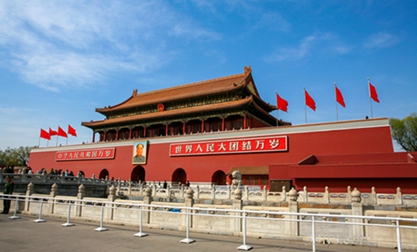By Li Cunnan, PhD and special commentator of Panview
Editor’s note: July 1, 2016 is the 95th anniversary of the founding of the Communist Party of China. The Party began as a small boat, and despite experiencing strong winds and rain, it made every effort to move forward, and had emerged into a big ship.

The best way to predict the future is to review history and examine reality. In 1800, there were 900 million people living in our world. China’s populations stood at 300 million. The country’s food production had accounted for about a third of the world, which ranked number one globally.
Meanwhile, China's industrial output accounted for 33.3% of the world, while Europe accounted for only 28.1%. In the 18th Century, there were only 10 mega-cities with more than 500,000 people, China had 6 of them - Beijing, Nanjing, Yangzhou, Suzhou, Hangzhou, and Guangzhou. However, China had endured economic hardships in the 19th and early 20th centuries.
The establishment of the Communist Party of China (CPC) had boosted development of China, setting a ballast stone for the ship to advance with unity.
China has made remarkable achievements, forming a unique and effective mode, which surprised the international community and made the Chinese feel full of confidence for national rejuvenation.
Global governments prefer a mature, experienced and stable ruling party to achieve economic development, social stability and improvement of people's livelihoods. Hence, some painful lessons are worth recognizing from western countries.
In 2004, the so-called "Orange Revolution" erupted in Ukraine and five years later, the country is still undergoing various difficulties such as a shrinking economy, currency devaluation, national debt, bankruptcy, social unrest and bitter conflicts.
In 2005, the so-called "Tulip Revolution" in Kyrgyzstan had broken out, which erupted into political infighting, degradation of economic development and people's quality of life. After the outbreak of the so-called "rose revolution" in 2003 in Georgia, its social productivity has declined, while nearly half the population live in poverty.
Yet, China's economy has developed in a stable and healthy manner in the past decade, which had deepened a better understanding of the Chinese model. The leadership of the CPC has served as the core of China's development.
The Eighteenth Conference of The Communist Party put forward "two one-hundred- goals". The CPC had set up a plan for China’s 2021 gross domestic product (GDP), along with urban and rural residents per capita income to double from 2010 levels, while a more well-off society in an all-round way can be built up.
Another goal is set for the middle of this century to celebrate the 100th anniversary of the founding of the People's Republic of China to establish a more prosperous, democratic, civilized and harmonious modern socialist country.
"Two one- hundred -goals" formulated the "road map" and "schedule "for the voyage of the giant ship of China .
China is a country with vast land and a large population, so there is a tremendous gap with regional development. Nonetheless, its economic development in various sectors continues to expand with social class distinctions becoming more apparent.
In the process of reform, there’s a growing need to reconstruct China's way of development to crack systematic obstacles and more complex pattern of interests, which require integration of powerful forces.
The powerful force is the CPC that would be connected with Chinese traditional culture, and more than 60 years in experience of leadership. Looking to the future, the CPC will adhere to its tradition of governing.
The CPC will improve the rule of law and development of the socialist system with Chinese characteristics to promote modernization, while confronting the four dangers of " low spirit, insufficient ability, far away from the crowd, and corruption."
Important measures will be taken to enforce strict discipline to crack down on corruption and that would offer a better political environment.
Meanwhile, the CPC will deepen reform policies to reconstruct relations between government along with the markets and society to carry forward Chinese excellent traditional culture.
The party will promote a profound traditional Chinese culture to find its essence of governing that would apply to modern practices.
The CCP endorses diplomacy with Chinese characteristics and Chinese style that promote new power relations for building new international relations with win-win cooperation as the core.
While building up a shared human destiny community for people from different countries, the party is contributing "Chinese wisdom" to maintain a more stable international order and global power system.
We have every reason to believe that the CPC can steer the ship of the Chinese nation to a better future, realizing its dream of agreat rejuvenation!
( The opinions expressed here do not necessarily reflect the opinions of Panview or CCTV.com. )

Panview offers an alternative angle on China and the rest of the world through the analyses and opinions of experts. We also welcome outside submissions, so feel free to send in your own editorials to "globalopinion@vip.cntv.cn" for consideration.















